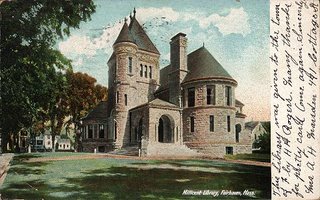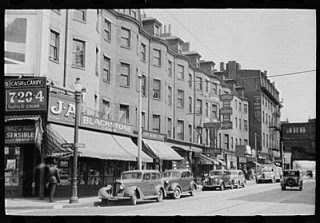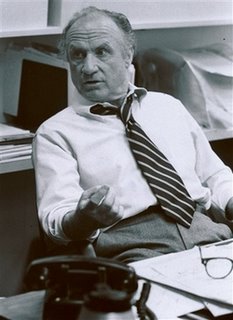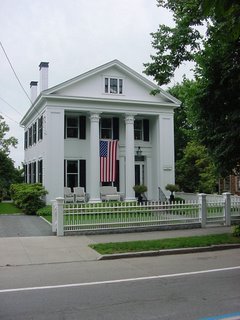Gimme Some Of That Old Time Religion
We’ll visit Benefit Street in Providence Rhode Island, dear reader. But first, a diversion.
Sunday is for wandering. My wife pleads for me not to work all seven days of the week, and not-working-but-staying-home is no day off for her. Let’s go for a walk, and point the camera at things, shall we?
I’ve been going to Providence Rhode Island regularly for over thirty years. I’ve done most everything there is to do there — thrice over. What are considered hoary old establishments now by the locals are places I go by and recall their predecessors of Jimmy Carter vintage. Hell, Gerry Ford vintage. Damn! Nixon vintage.
I know exactly what my family looks like to the denizens of the part of town known as college hill. Both Brown and the Rhode Island School of Design are right there, and the place has had alternated between a bohemian and a faux-bohemian vibe since I’ve trod the earth.
We have no tattoos. No skinny glasses. No moonboot athletic shoes. No swoosh stripes. We dress ourselves and our children unstylishly, really; to be stylish nowadays, and casual, is to be deliberately poorly dressed. And it’s expensive to dress badly; the affectation of poverty costs big, generally. We are neatly turned out, and all our clothes match- that’s it. There are no slogans of any kind on anything we wear. My wife has the beauty of a real woman, and her clothes just wrap it. Women wish they were her; I doubt many wished they were dressed like her.
Our children unselfconciously clutched balloons from the burger restaurant, and wore the paper hats given them. They were not being wry- and genuine need not a apply on college hill.
A disreputable street person approached me, and tried to press a pamphlet in my hand, and whisperered that the Marxist something Worker’s something Revolutionary something something would set me free.
I know how this works. He is a bum. He is being paid to hand out these pamphlets. That is why he mumbles a slogan that is designed to be delivered like Mussolini from a balcony. He’s not getting his dough for drugs or booze or a flop if he doesn’t unload the pamphlets, but he couldn’t care less what’s on it. And I know that if ridding himself of the documents was all he had to do, they’d be in the nearby 7/11 dumpster by now. So I know he’s being watched. My conjecture is not disappointed.
We cross the street to promenade further, and head back the direction we came. And there they are: his handlers. They have a card table, and a banner, and folding chairs, and big stacks of said pamphlets, and they see us coming.
It’s striking to walk down that street, after over thirty years of walking down that street, and seeing them there. Because they are squatting right adjacent to the location of my own brother’s old place of business. They called it an “alternative” bookstore back then, but let’s not pussyfoot around; it was a communist bookstore.
Communism is that sweetest of ideals — we’re all pals and should share everything. My brother is smarter than me; he’s a better father to his children than me; he’s more talented at everything he’s ever tried than me; and he devoted a goodly portion of his time to the ideals on those pamphlets I was looking at now, thirty years later, flapping a bit in the breeze outside his old haunt. The Soviet Union was still very much a going concern, back then.
The two fellows eyed me a bit. They scanned my familial situation. I could see intellectual calculations going on behind their severe skinny glasses.
I was doing some mental calculations too. Mine were wobbling between the sort of polite demurrals you have at the ready for the panoply of geeks, freaks, and entreaters of all sorts that come at you in any city, and the unwise urge to tell them how stupid they looked to me.
There are certain things you know without having to be told. And I knew for a certainty that those two fauntleroys have never, and will never, really work a day in their lives. They were each wearing north of five hundred dollars worth of clothing and accessories, minutely calculated to make them look disheveled. My wife, who you perhaps have gathered is a female, would be unable to afford having her hair cut by the salon where these two had their hair artfully arranged to look like they had just rolled out of bed. They are attending schools using money unearned by them, and are out politicking for a lark. The Workers are a lovely abstraction to them. They are going to save them.
I read once that college educated persons rarely have friends that are not. If you press them on that, they always claim their menial laborers as their friends, like a country club swell hugging the landscaper for unbigoted effect. I attended a conclave of writers once, and a nice fellow made a remark about the great unwashed, which took the form of the great uneducated in his vernacular. He asked me directly where I was degreed. I said I was not. He almost fell over me trying to apologize while saying “not that there’s anything wrong with that.” He was pleasant and didn’t understand why what he said was interesting. The idea that anyone present would have a different background never occurred to him; he doesn’t have a mean bone in his body, and really, I didn’t care.
Well the card table bohemian Marxists loomed large now on the radar screen. I saw them watching the bum they had hired directly across the street, and eying me. And here I was, right in front of them; I was the person they were touting on all those flyers. I was the worker who they would emancipate. I’ve been a body shop mechanic, and a janitor, and a housepainter, and a welder, and a factory hand, and a starving artist, and a laborer, and every other damn thing. If I sneeze at the wrong time I could still lose a finger or two at work. And I didn’t play at working hard for a few months between semesters, and then think I know what it’s like to see the horizon, fifty or sixty years off, with nothing but your wits and your back to get you there.
I actually became interested. What could you possibly have to say to me, I wonder?
They sized me up, and pulled their hands back in, and let me pass by without saying anything. They waited a short moment for the next trust fund bohemian to come along, and pressed the pamphlet into their hands with a rousing: Help us emancipate the working man.
The communist bookstore is a Sovereign Bank now.











Recent Comments